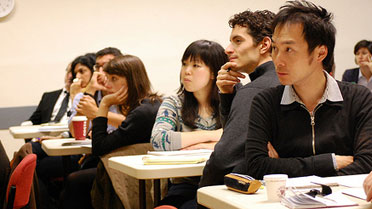On 26 October 2012 the STEPS Centre and SOAS ran a joint event to discuss the connections made between water, energy, food and climate, and the tendency to frame these issues in terms of ‘security’.
The increasing references to a so-called water-energy-food ‘nexus’ reflects the understanding that vital resources are connected in fundamental ways. Although many academics and policy makers working on how humans interact with natural resources have long recognised these connections, this language is now being found in new and surprising places.
The event Not another nexus: Critical thinking on the ‘new security convergence’ in energy, food, climate and water brought together researchers and practitioners in international development to explore the risks and consequences of these changes.
Water, food and energy (among other things) are also increasingly ‘securitised’. This has attracted attention from powerful interests, including presidents, corporations and the military, to issues which may otherwise have been neglected. But what are the risks of ‘security’ narratives, and what do they mean for poor and marginalised people? Do they help to open up new debates, or close them down?
Three eminent speakers shed light on the issue. Larry Swatuk (Waterloo University) explored the rise of the ‘nexus’ concept in policy documents from the World Economic Forum to the World Bank. He also highlighted the risks of framing water and other resources in terms of ‘security’, which may lead to social issues being treated as national security issues, and to privatisation and commodification of public goods. Itay Fischhendler (Hebrew University of Jerusalem) presented detailed research into how concepts of nexus and security are being used in influential documents, and how rights-based discourses are interacting with these concepts. And Richard A Matthew told the story of how environmentalists in the USA used the language of security to draw attention to major problems in water, climate and energy in the period following the Cold War.
Presentation slides:
A panel discussion about the use of the nexus in development policy featured contributions by Jeremy Allouche (STEPS Centre), Laura Hammond (Soas), Christoph Merdes (DFID) and Naho Mirumachi (King’s College London).
Video interviews
In the interviews below, the three key speakers talk about different aspects of the nexus and securitisation.
Larry Swatuk, Waterloo University, Canada
Richard A Matthew, University of California at Irvine
Itay Fischhendler, Hebrew University
More on Water and Sanitation
Visit our Water & Sanitation research domain for more on this topic.
